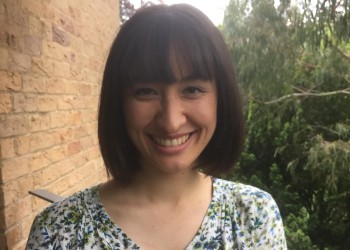
The Good Robot Podcast
Join researchers Eleanor Drage and Kerry Mackereth as they ask the experts: what is good technology? Is ‘good’ technology even possible? And what does feminism have to say about it?
Each week, they invite scholars, industry practitioners, activists, and more to provide their unique perspective on what feminism can bring to the tech industry and the way that we think about technology.
The Good Robot podcast brings you conversations with people at the cutting edge of technological innovation and the most persuasive critics of these new technologies.
Our first episodes feature:
-
The Venerable Tenzin Priyadarshi, President and CEO of the Dalai Lama Centre for Ethics and Transformative Values at MIT, on how Buddhism can inform AI ethics.
-
N. Katherine Hayles, Distinguished Professor of English at UCLA and James B. Duke Professor of Literature Emerita at Duke University, on feminism, embodiment, cognition, and human-AI relationships.
-
Priya Goswami, anti-FGC activist, award-winning filmmaker, and CEO and founder of the AI-driven app Mumkin, on feminist data practices and building apps that ‘do good’.
-
Anita Williams, Gates technology scholar, ex-Googler and counter-abuse policy and platform protection specialist on the new challenges arising in the area of online abuse.
The Good Robot Podcast is part of the University of Cambridge Centre for Gender Studies’ Gender and Technology project. Generously funded by Christina Gaw and run collaboratively with the Leverhulme Centre for the Future of Intelligence, the project is a cutting-edge collaboration between academia and industry premised on the mutual exchange and development of ideas, knowledge and products.
The project translates scholarship into practical knowledge for industry, while also allowing industry approaches to inform academic work in the field of Gender Studies. It ultimately aims to provide the AI sector with practical tools for creating more equitable AI informed by intersectional feminist knowledge.
Listen to the Good Robot on:
Buzzsprout
Spotify
Stitcher
Follow the Good Robot on Twitter
Subscribe to our mailing list
Episode One
In this episode, we chat with Anita Williams, an online counter-abuse policy and platform protection specialist, about the new challenges arising in the area of online abuse and how abusers exploit platforms and systems. We explore the multiple and intersectional harms that can arise from new technologies, the ethical problems around data collection, the protections required for content moderators, and the need to build women’s experiences into new technologies.
Episode Two
In this episode, we chat with The Venerable Tenzin Priyadarshi, President and CEO of the Dalai Lama Centre for Ethics and Transformative Values at MIT, about how Buddhism can inform AI ethics. We discuss the problem with metrics, how to make meaningful contributions to ethics and avoid virtue signalling, why self-driving cars coming out of Asia and Euro-America prioritise the safety of different road users, and whether we should be trying to make machines intelligent, wise, or empathetic.
Episode Three
In this episode, we chat with Priya Goswami, anti-FGC activist, award winning filmmaker, and CEO and founder of the AI-driven app Mumkin, about feminist data practices and app design. We discuss designing and building apps that do good, why an app’s “users” are actually “participants”, and why you cannot compromise on the participants’ privacy and safety. Priya explains what it means to design an app as an activist, why feminism should be normalised, and the problem with running activist campaigns on social media.
Episode Four
In this episode, we chat with N. Katherine Hayles, Distinguished Professor of English at UCLA and James B. Duke Professor of Literature Emerita at Duke University, about feminism, embodiment, cognition, and human-AI relationships. We explore the role of feminism in science and technology, what productive conversations between engineers and humanities scholars look like, literary depictions of non-human embodiment and cognition, and the distribution of cognition across human-AI systems.
Dr Eleanor Drage
Dr Eleanor Drage is a Christina Gaw Post-doctoral Research Associate at the Centre for Gender Studies and a member of the Gender & Technology Research Project team.
Eleanor started her career in financial technology before co-founding an e-commerce company. She graduated with an International Dual PhD from the University of Bologna and the University of Granada in 2019, where she was an Early Stage Researcher for the EU Horizon 2020 ETN-ITN-Marie Curie project “GRACE” (which investigated the production of 'cultures of gender equality' in Europe). As part of this project Eleanor helped develop a software application, which communicated intersectional feminist ideas and methodologies to the public. Her publications focus on how humanity defines and constitutes itself both through unstable socio-cultural processes such as race and gender and through fallible technological systems.
Eleanor is particularly interested in how technology can prompt and develop certain kinds of behavioural skills, and how anti-racist and anti-sexist critical theory can be implemented at industry-level to develop ethical and socially transformative technological products. Her work investigates how queer and intersectional methodologies can be applied to improving technological processes and systems. Eleanor is also a Research Associate at Darwin College, Cambridge.
Kerry Mackereth
Kerry Mackereth (she/her) is a Christina Gaw Post-doctoral Research Associate at the Centre for Gender Studies and a member of the Gender & Technology Research Project team. She is also a Research Associate at St. John’s College, Cambridge.
Kerry's work broadly explores how histories of gendered and racialised violence shape new technologies. Kerry's PhD thesis examined how women’s violent protests, specifically, their hunger strikes in the contexts of women’s prisons and immigration detention centres, complicate theories of political violence. Some of her previous work has also examined how representations of artificial intelligence in science-fiction film and television are shaped by racialised concepts of gender.
These areas of inquiry combine in Kerry's current research on the relationship between artificial intelligence, gender, and racialisation. For example, she is currently working on a paper that examines how the concept of the ‘Yellow Peril’ shapes contemporary AI discourse. She is also particularly interested in the use of AI in the field of policing, as understood through the lens of critical prison studies. Alongside Ola Osman, PhD in Multi-disciplinary Gender Studies, Kerry is the co-convener of the 'Race Talks' seminar series.
Image credit unsplash.com/@helloimnik

